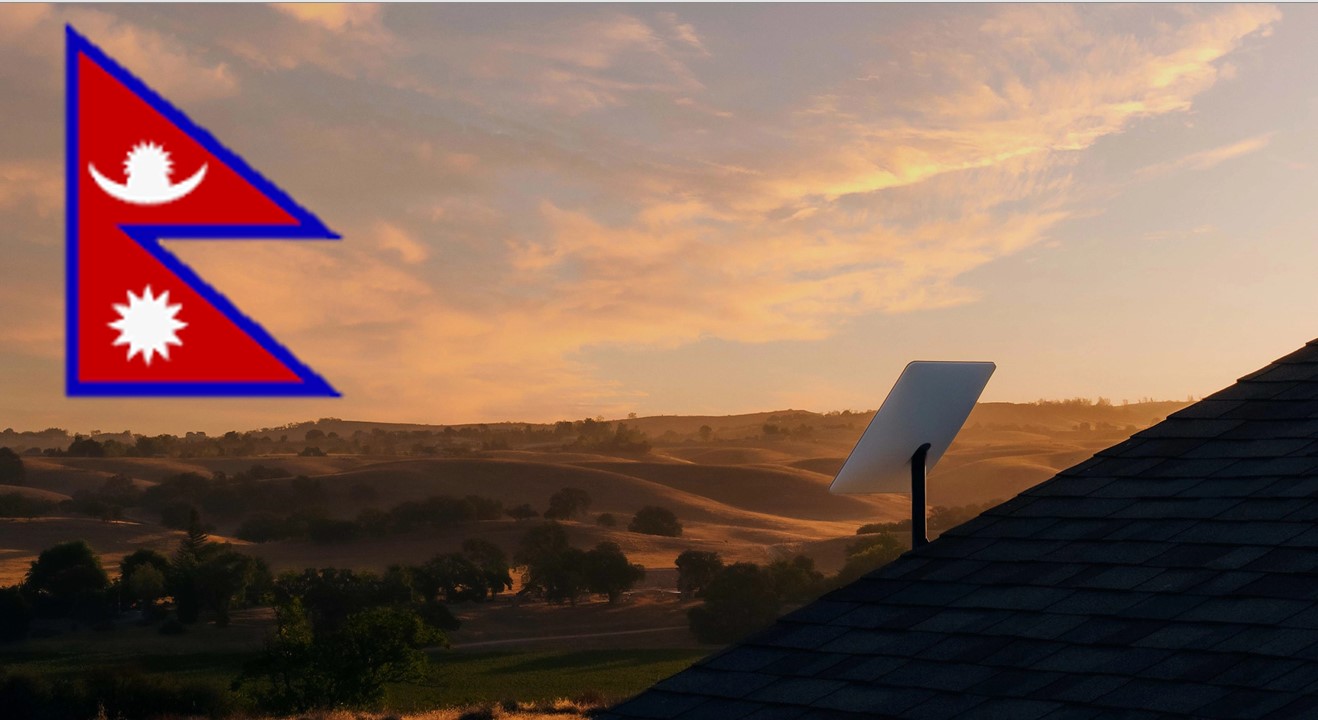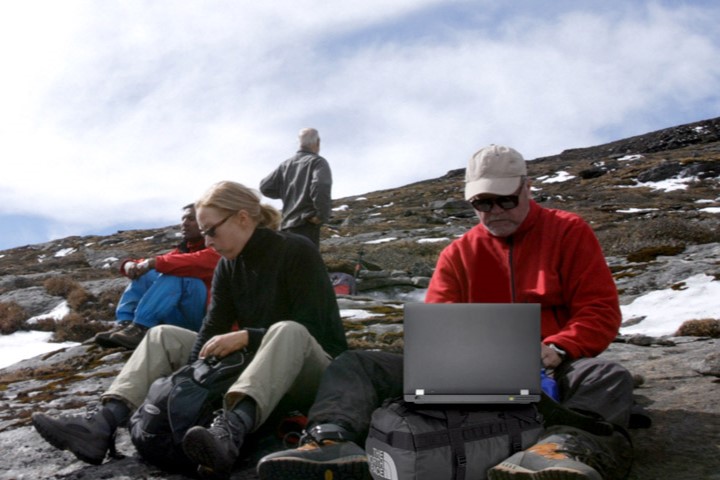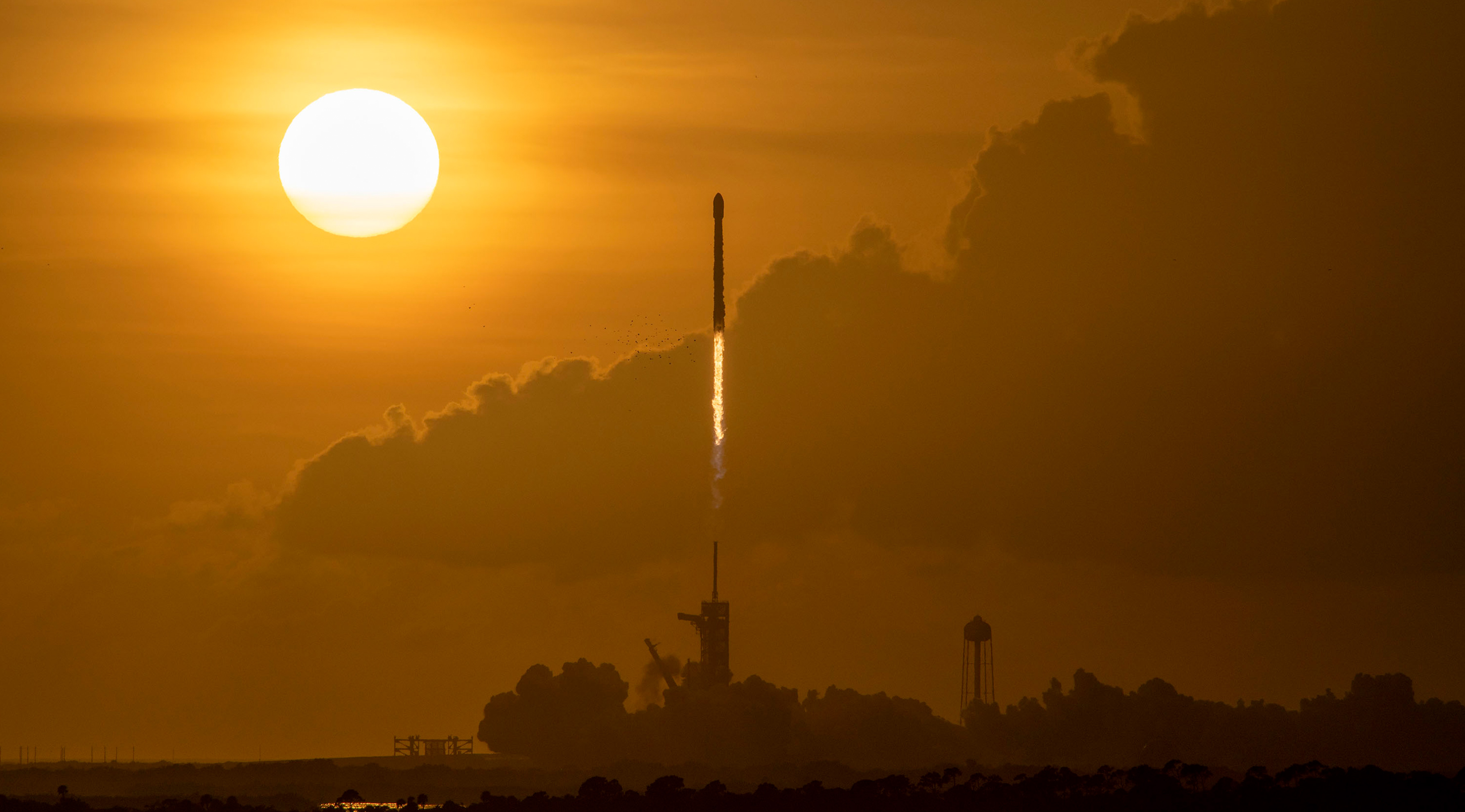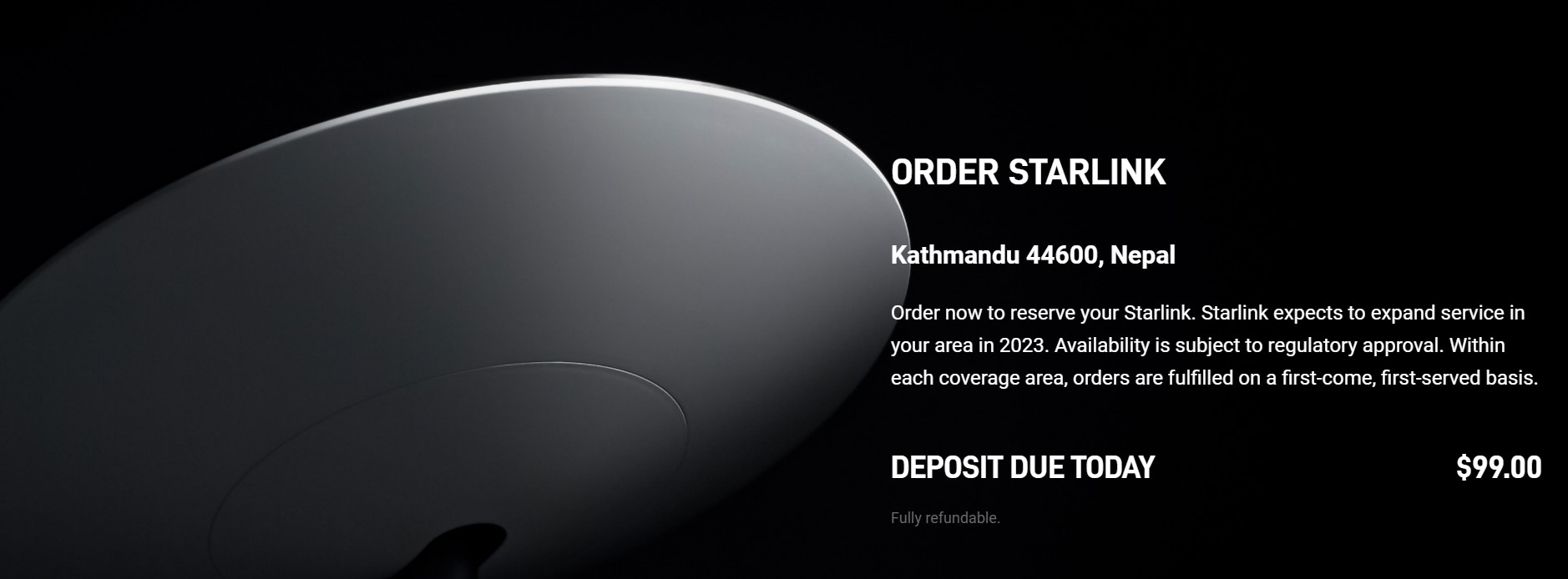Science & Technology

The availability map on Starlink’s website shows North America and most European countries are connected to its satellite broadband high-speed internet service.
The same map when one zooms into Nepal shows Starlink will expand into Nepal in 2023. New Year is 10 days away. Subscribers can make a reservation by paying $99.
So, is Elon Musk really looking at Nepal to expand Starlink?
The answer to this question is Yes. More on that later.
Does Nepal have a big market for satellite internet?

Yes, Nepal has a huge market considering the size of its population.
Nepal is a mountainous country, and installing internet service to homes on hills and hamlets across the country is difficult and unfeasible. The upper reaches of Nepal are still rarely accessible through broadband internet. People living there have little choice. Therefore, satellite internet is suitable and feasible for Nepal.
According to the Nepal Telecommunication Authority [NTA] report, Everest Link partnered with the Kacific satellite constellation and has 403 users as of mid-September. The company entered the Nepali market in August. Everest Link offer their services in the upper Khumbu regions and also include the Everest base camp. This shows the service is viable.
Starlink has applied for Global Mobile Personal Communication by Satellite (GMPCS) licence in India. Companies like these generally apply for the internet with e-mail or VSAT or Rural ISP licences in Nepal according to the NTA.
NTA is the telecommunications regulatory body. It has the the right to issue licences to any networking ventures seeking to expand in Nepal.
GPS device service providers apply for this licence, according to NTA officials. Nepal currently has 2,986 GMPCS subscribers.
Trekking and mountaineering tourism continues to rise in Nepal. Therefore, the demand for broadband access to satellite internet will definitely rise.
Did Starlink apply in Nepal for a licence?
1671623795.jpg)
A high-ranking executive at NTA, who did not wish to be identified, said: “Starlink approached NTA for such licences and regulatory approval nearly a year ago.”
“It seems like they have now backed down from their expansion plans in Nepal. They have neither applied for a licence, nor has the NTA heard from them in a year’s time.”
According to the official, SpaceX wanted 100 per cent stake in their Nepali venture. Nepali law does not allow 100pc stake to foreign entities.
“A Nepali company must have at least 20 per cent stake in a foreign venture. Perhaps this could be the reason they did not continue talks for the licence,” he said.
Elon Musk is known for demanding a 100 per cent stake in foreign companies. For example, Tesla holds a full stake in China. Tesla got an exemption in China for Tesla China Project. The US billionaire believes in taking full control in foreign ventures.
The question remains, will Nepali authorities be able to amend rules to give Starlink an exemption or, will Musk relent and accept the law for an 80-20 per cent partnership with a Nepali company?
What if Starlink chooses a rogue deployment?

NTA Assistant Director Rewati Ram Pantha says: “Nepal has rules in place to check such illegal roadmaps of internet deployment.” Pantha oversees the legal department at NTA.
“If anyone tries to smuggle an antenna [receiver] and use the service, NTA shall confiscate the device and the person will face legal repercussions.”
Chapter 10 of the Telecommunications Act 1997 details punishments and appeals. The law says: “If any person operates telecommunications service without obtaining the licence pursuant to this Act or operates the telecommunications service without complying with the terms and conditions mentioned in the licence, the Authority may levy a fine up to Rs500,000 to such person and may also cause to stop such act.”
The authority holds the right to confiscate the devices and fine the offenders.
Meanwhile, SpaceX has made reservation of satellite internet service available in Nepal for $99. Reservation holders, as per the website, will get priority during the installation on a first-come-first-serve basis when the service starts. The order page mentions “Availability is subject to regulatory approval.” This suggests the company will seek approval before launching the service.

The concept of beaming internet service from space is efficient, but gaining official approval on the ground is difficult.
The satellite internet venture also got into regulatory hurdles in India.The communications ministry in India has said Starlink is not a licensee in India and issued a public advisory informing Indian citizens not to subscribe to Starlink satellite internet service. It also was barred from taking any reservation fees until the venture receives the licence and told them to refund fees already collected.
As of December 2022, Starlink consists of over 3,300 mass-produced small satellites in low Earth orbit (LEO), which communicate with designated ground transceivers. Nearly 12,000 satellites are planned to be deployed, with a possible later extension to 42,000, according to a Financial Express report published on December 20.
Satellite internet is expected to come soon in India. There are reports that India could be the first country to hold an auction for satellite communication. Satellite internet services will bridge the existing digital divide in India. The technology will help connect rural and remote parts of the country that are difficult to access through cables or microwave signals from towers, the report added.
How will the arrival of satellite communication benefit any country? Better connectivity will be the first noticeable change. This will help connect remote places. Public utilities and institutions like schools, colleges, hospitals and government department services will become fast and efficient.






